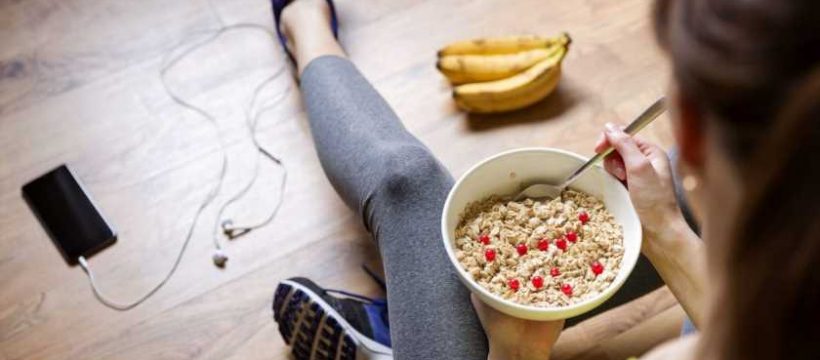These foods will boost your energy so you can get through a winter workout.
Staying in bed, rather than jumping up to your 6am alarm, is tempting year-round. But, right now, keeping the warm blanket on often trumps getting out of bed into darkness and single-digit degrees weather. Even if you don’t train in the morning, motivation and energy for exercise can be low during these months. “Due to reduced exposure to sunlight some people experience a general slowing down as a result of our natural hibernation response. That can lead people to feeling tired and sleepy,” explains Dr Sarah Brewer, medical director at Healthspan.
You may also like
Daylight savings: The benefits of morning sunlight, and why you should go outside when you wake up
While fuelling properly is essential at all times, getting the proper energy into our systems during this hibernation period is crucial. So what should we be reaching for?
Energising foods to eat in winter
“Oily fish provides omega-3 oils that have beneficial effects on the brain and mood regulation, with some evidence suggesting they may reduce depression in general,” says Dr Brewer, so if winter is making you feel a little more flat than usual, consider getting in more fish such as salmon and sardines.
You might also need to consider how much you’re eating during the colder months, particularly if your training involves being out in the thick of it. “During winter we may need more calories to help us stay warm – although this is less of an issue in modern centrally heated homes and offices than it was for our caveman ancestors. But regardless on the length and intensity of your workout, and whether or not you are trying to gain muscle mass, you need to eat enough,” says Dr Brewer.

Remember that getting in enough protein is also crucial to support your muscles during and after training, as well as the proper micronutrients. “Vitamin D is important for muscle health,” Dr Brewer says. “While you can obtain vitamin D in your diet from foods such as oily fish, animal liver, eggs, butter and fortified milk, current advice is that everyone takes a vitamin D supplement during autumn and winter months.”
You may also like
Vitamin D: How the supplement can support strength training
The importance of pre-workout carbohydrates
To help get you in the mood for training, we need to concentrate on energy-boosting carbohydrates, says Dr Brewer. “Opting for slow lower-glycemic foods over the course of the day can stop you from feeling sluggish, but fast-digesting foods like bananas are useful as a pre-workout,” she adds. She recommends adding these carbohydrates into your diet:
- wholegrains, such as porridge, brown rice and quinoa
- root vegetables including carrots, parsnips and sweet potatoes
- beans and lentils
- fresh or dried fruit
When it comes to eating before the gym, Dr Brewer suggests making porridge with nuts and berries, or if you’re looking for a snack then opt for nut butter on rice cake or fruit and nut energy bars.
Looking for energising recipes and nutrition tips? Sign up the Strong Women Training Club.
Source: Read Full Article
